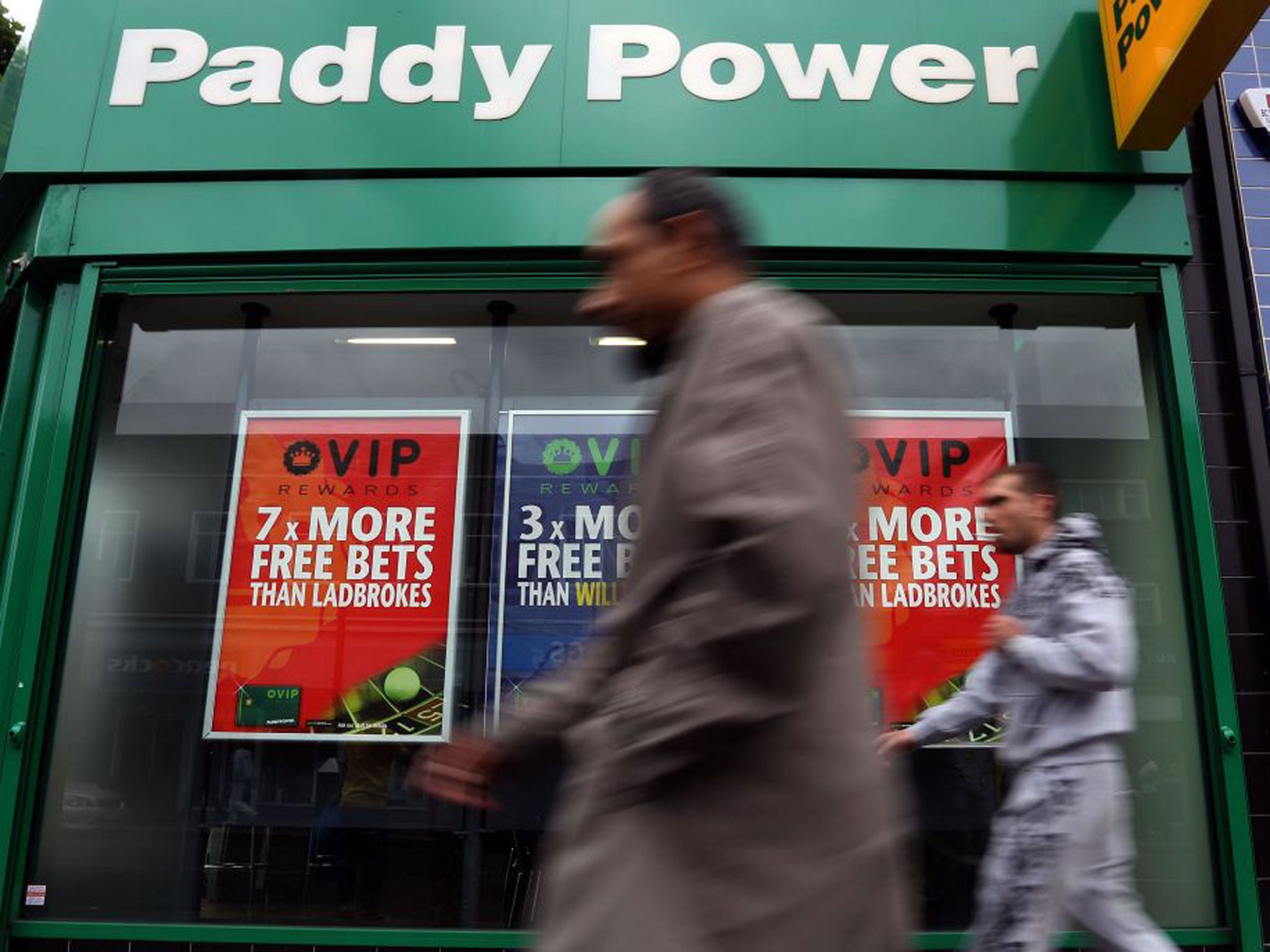High-stakes Britain: PaddyPower in court over spread of fixed odds gaming machines
Newham, east London - which has six bookies' per square mile - takes firm to court

Scott takes a drag of his cigarette in the doorway of a betting shop on East Ham High Street - one of a handful on this stretch of pavement alone - where he has spent the past three hours “having a little gamble”.
“What's a positive thing about a bookies?” he repeats the question, looking behind him through the doorway into a room full of men perched on stools or gathered around machines, untouched by daylight. “There ain't nothing positive. Nothing,” he shrugs.
So why is he here, pouring his money into slot machines that rarely pay out? “Most people it's an addiction, nothing good can come of it,” he reasons. “Me? I'm alright, I'm just having a gamble.”
There are some 80 bookmakers - six per square mile - in the borough of Newham, a culturally rich and economically poor pocket of East London.
Open from 8am to 10pm seven days a week, they punctuate the landscape from Stratford to Barking, lurid signs poking out between boarded-up commercial properties, and shops offering money transfers, cash for clothes, everything for a pound. In some parts they even leer out amid terraces of residential houses.
Reflecting the views of some residents, the local council has decided enough is enough.
In what could prove a landmark case, Newham Council was in court today seeing off plans for three more stores from one of Britain's market leaders, PaddyPower, which already has 12 shops in the borough.
In what was the first time such a power has been tested, the local authority argued that bookmakers had wilfully targeted poorer areas with shops being used primarily for gaming rather than gambling.
Ahead of the opening day at Thames Magistrates Court, Newham Council said it would defend its decision to reject an operating licence to PaddyPower on the grounds that the primary profits would come from the highly addictive fixed odds betting terminals (FOBTs).
It also claimed that local authorities have limited legal powers to fight the opening of betting shops which are increasingly being run as clusters on the high streets as a way of circumventing planning laws.
The council concluded that no matter how good an operator, anti-social behaviour would be associated with the site.
Ali Mil, 32, who runs a stall selling phone cards on Green Street, said bookies in the area were targeting a younger generation with slot machines: “They have a bad effect on young people, it's too easy to lose money... It brings problems to the area. The gambling creates problems: fighting in the streets, drinking. There is a bigger problem coming in the future.”
Inside an existing PaddyPower shop a stones' throw away, it was business as usual.
In a room with windows blocked from the outside world, customers of all ages were lined up in front of screens showing dog racing and cricket, while a throng of people as diverse as this community - though all but one was a man - crowded around a row of slot-machines, trying to talk the machine into being kind as they fed in cash.
Staff at the shop refused to comment on how much of their trade derives from which type of bet, but with FOBTs responsible for £1.4billion a year – up by 40 per cent since 2008 – these machines generate half of profits nationwide.
Earlier this year, Councillor Ian Corbett, who chaired the council's licensing subcommittee, argued that it needed to “encourage diversity on the high street,” where it is “just one betting shop after another” (one road in Newham had 18 of them).
Councillor Corbett said betting shops “generate about 80 per cent of their income from fixed-odds betting terminals (FOBTs)”.
Outside, other shopkeepers feared a growing number of bookmakers was impacting gravely on local people and more should be done.
Sajda Rahman, who runs a stall on the high street in Upton Park selling purses, said: “It affects individual businesses and does nothing for the community. I particularly worry for the next generation.
“They should close them all down. That money, all that money, could be used somewhere better. ”
PaddyPower declined to comment as the case was ongoing.
Join our commenting forum
Join thought-provoking conversations, follow other Independent readers and see their replies
Comments
Bookmark popover
Removed from bookmarks